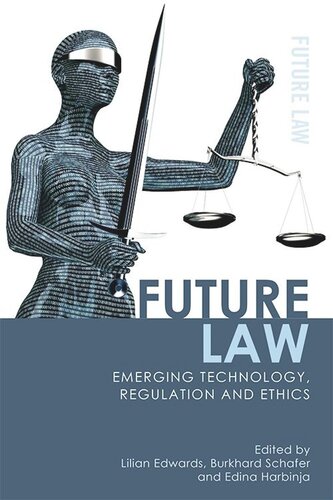

Most ebook files are in PDF format, so you can easily read them using various software such as Foxit Reader or directly on the Google Chrome browser.
Some ebook files are released by publishers in other formats such as .awz, .mobi, .epub, .fb2, etc. You may need to install specific software to read these formats on mobile/PC, such as Calibre.
Please read the tutorial at this link: https://ebookbell.com/faq
We offer FREE conversion to the popular formats you request; however, this may take some time. Therefore, right after payment, please email us, and we will try to provide the service as quickly as possible.
For some exceptional file formats or broken links (if any), please refrain from opening any disputes. Instead, email us first, and we will try to assist within a maximum of 6 hours.
EbookBell Team

4.1
70 reviewsBringing together cutting-edge authors from academia, legal practice and the technology industry, this book explores and leverages the power of human imagination in understanding, critiquing and improving the legal responses to technological change.
Paul Bernal Senior Lecturer, School of Law, University of East Anglia
Damian Clifford Flemish Research Council (FWO) Aspirant Fellow, KU Leuven Centre for IT & IP Law
Melissa de Zwart Dean of Law, Adelaide Law School, University of Adelaide
Catherine Easton Reader in Law, University of Lancaster
Lilian Edwards Professor of Law, Innovation and Society, Newcastle Law School, Newcastle University
Andres Guadamuz Senior Lecturer in Intellectual Property Law, University of Sussex
Rob Hamper PhD Candidate, University of New South Wales
Edina Harbinja Senior Lecturer in Media/Privacy Law, Aston Law School, Aston University
Andrew Katz Partner, Moorcrofts LLP, UK and Visiting Researcher, University of Skövde, Sweden
Michaela MacDonald Teaching Fellow, Queen Mary University, London
Alana Maurushat Professor of Cybersecurity and Behaviour, Western Sydney University
Miranda Mowbray Lecturer in Computer Science, University of Bristol
Andelka M Phillips Senior Lecturer, Te Piringa (Faculty of Law), University of Waikato, and Research Associate, Centre for Health, Law and Emerging Technologies (HeLEX), University of Oxford
Burkhard Schafer Professor of Computational Legal Theory, School of Law, University of Edinburgh
Lachlan D Urquhart Lecturer in Technology Law, School of Law, University of Edinburgh and Visiting Research Fellow, Horizon Digital Economy Research Institute, School of Computer Science, University of Nottingham